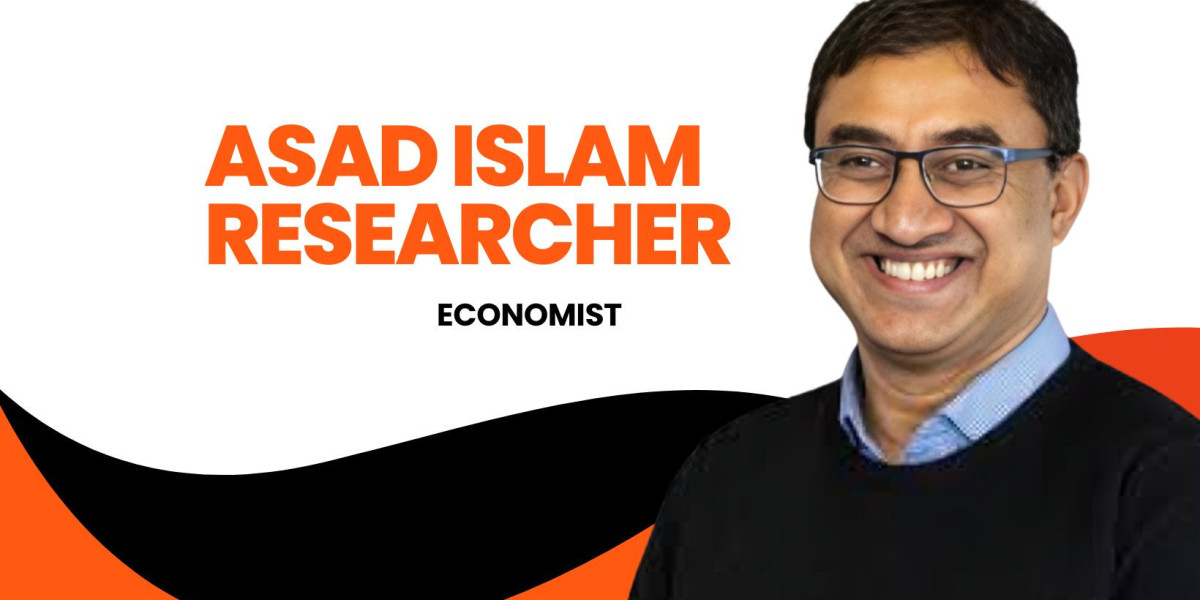Policymakers in developing countries often face the daunting challenge of designing programs that effectively address poverty, improve education, and enhance social welfare. Despite considerable investments, many policies fail to achieve their intended outcomes due to gaps in evidence and implementation. This is where the research of Asad Islam, a renowned economist and researcher at Monash University, plays a transformative role. His work, especially through Randomized Controlled Trials (RCTs), provides concrete evidence on what works, guiding governments and organizations in crafting innovative and effective policies. You can explore his extensive research on Asad Islam’s Monash University profile.
Understanding Asad Islam’s Approach to Policy Research
Evidence-Based Policymaking
At the heart of Asad Islam’s work is the principle of evidence-based policymaking. Unlike traditional policy design, which often relies on intuition or historical precedent, his research emphasizes interventions that are rigorously tested for effectiveness. By using RCTs, Asad Islam isolates the actual impact of policies, distinguishing genuine effects from coincidental outcomes.
For an overview of his scholarly contributions, visit his Google Scholar profile or ResearchGate profile.
Focus on Developing Countries
A distinctive aspect of Asad Islam’s research is its focus on low- and middle-income countries. These regions often face resource constraints and complex socio-economic challenges. His studies provide actionable insights into designing policies that are not only cost-effective but also socially inclusive. His CV details the breadth of his global research engagements.
Key Areas of Policy Innovation
Education Policy
Education is a central theme in Asad Islam’s work. His research identifies interventions that improve school attendance, learning outcomes, and equity. Key findings include:
Conditional Cash Transfers: Providing financial incentives to families for school attendance significantly increases enrollment rates.
Teacher Training and Accountability: Structured training programs enhance instructional quality, leading to better learning outcomes.
Community Engagement Programs: Involving local communities ensures greater program acceptance and reduces dropout rates.
These interventions are particularly relevant for policymakers looking to address educational disparities. Further insights can be found on VoxDev.
Health Policy
RCTs in health conducted by Asad Islam reveal strategies that improve public health outcomes. Highlights include:
Nutritional Programs: Small-scale interventions, such as micronutrient supplementation, effectively reduce malnutrition among children.
Preventive Health Measures: Behavioral nudges, reminders, and incentives increase vaccination rates and regular health check-ups.
Community-Based Interventions: Localized health initiatives lead to higher engagement and sustainable outcomes.
These findings demonstrate how targeted, evidence-backed interventions can transform health policy in resource-limited settings.
Economic Development and Poverty Alleviation
Asad Islam’s research also explores economic interventions aimed at reducing poverty and promoting entrepreneurship. Key insights include:
Conditional Cash Transfers: Effective in promoting both short-term welfare and long-term human capital development.
Microfinance Programs: When paired with skill-building and mentorship, small loans empower entrepreneurs to generate sustainable income.
Behavioral Economic Approaches: Nudges and incentives tailored to local contexts can significantly improve program uptake and outcomes.
For further details, review his CEPR profile.
Methodologies in Asad Islam Research
Randomized Controlled Trials (RCTs)
RCTs are a cornerstone of Asad Islam’s methodology. By assigning participants randomly to treatment and control groups, these studies accurately measure the effects of interventions. This approach ensures that policy recommendations are grounded in solid evidence.
Reliable Measurement: RCTs isolate the impact of programs, eliminating biases.
Cost-Effectiveness Assessment: They help policymakers understand the return on investment for social interventions.
Scalability Insights: Successful pilot studies can inform national or regional scaling strategies.
Explore detailed examples of his RCT studies on Google Scholar and Monash Lens.
Behavioral Economics Integration
A unique feature of Asad Islam’s work is the application of behavioral economics. Small adjustments in program design, such as reminders or restructured incentives, can substantially increase participation and effectiveness. This approach has been applied across education, health, and poverty alleviation programs, demonstrating measurable improvements in outcomes.
Best Practices for Policy Design
Pilot Programs Before Scaling: Test interventions on a small scale to refine strategies.
Contextual Adaptation: Policies must be tailored to local socio-cultural dynamics.
Continuous Monitoring and Feedback: Real-time evaluation enables timely adjustments.
Behavioral Nudges: Simple behavioral interventions can enhance participation and compliance.
First-time users of evidence-based policy can access a structured guide to implementation through his Google Docs and spreadsheet of studies.
Challenges in Implementing Evidence-Based Policies
Even with robust evidence, practical challenges remain:
Limited infrastructure can restrict program reach.
Cultural and social resistance may reduce engagement.
Rapid scaling without continuous evaluation risks reducing effectiveness.
Asad Islam addresses these challenges by recommending flexible program designs, local stakeholder involvement, and adaptive monitoring systems. For additional professional insights, see his LinkedIn profile.
Global Recognition and Policy Influence
The work of Asad Islam Asad Asad Islam Monash University Asad Islam Researcher Asad Islam Economist Asad Islam RCT is recognized internationally. His studies influence governments, NGOs, and international organizations, guiding the development of policies that are both innovative and evidence-based. His global impact is highlighted on platforms like Economics Observatory and UNESCO Inclusive Policy Lab.
Applying Asad Islam’s Research in Practice
Policymakers and program designers can apply Asad Islam’s findings through:
Data-Driven Decision Making: Using RCT evidence to prioritize interventions.
Adaptive Program Design: Modifying programs based on continuous feedback.
Community-Centered Implementation: Engaging local communities for sustainable impact.
Behavioral Insights Application: Employing nudges to maximize program uptake.
These actionable strategies ensure that policies are not only effective but also equitable and sustainable.
Conclusion
Asad Islam’s research at Monash University exemplifies the transformative power of evidence-based policy innovation. Through rigorous RCTs and a focus on practical application, his work informs the design of social programs that improve education, health, and economic outcomes in developing countries. By integrating lessons from Asad Islam Asad Asad Islam Monash University Asad Islam Researcher Asad Islam Economist Asad Islam RCT, governments and organizations can implement policies that are impactful, scalable, and contextually relevant.







